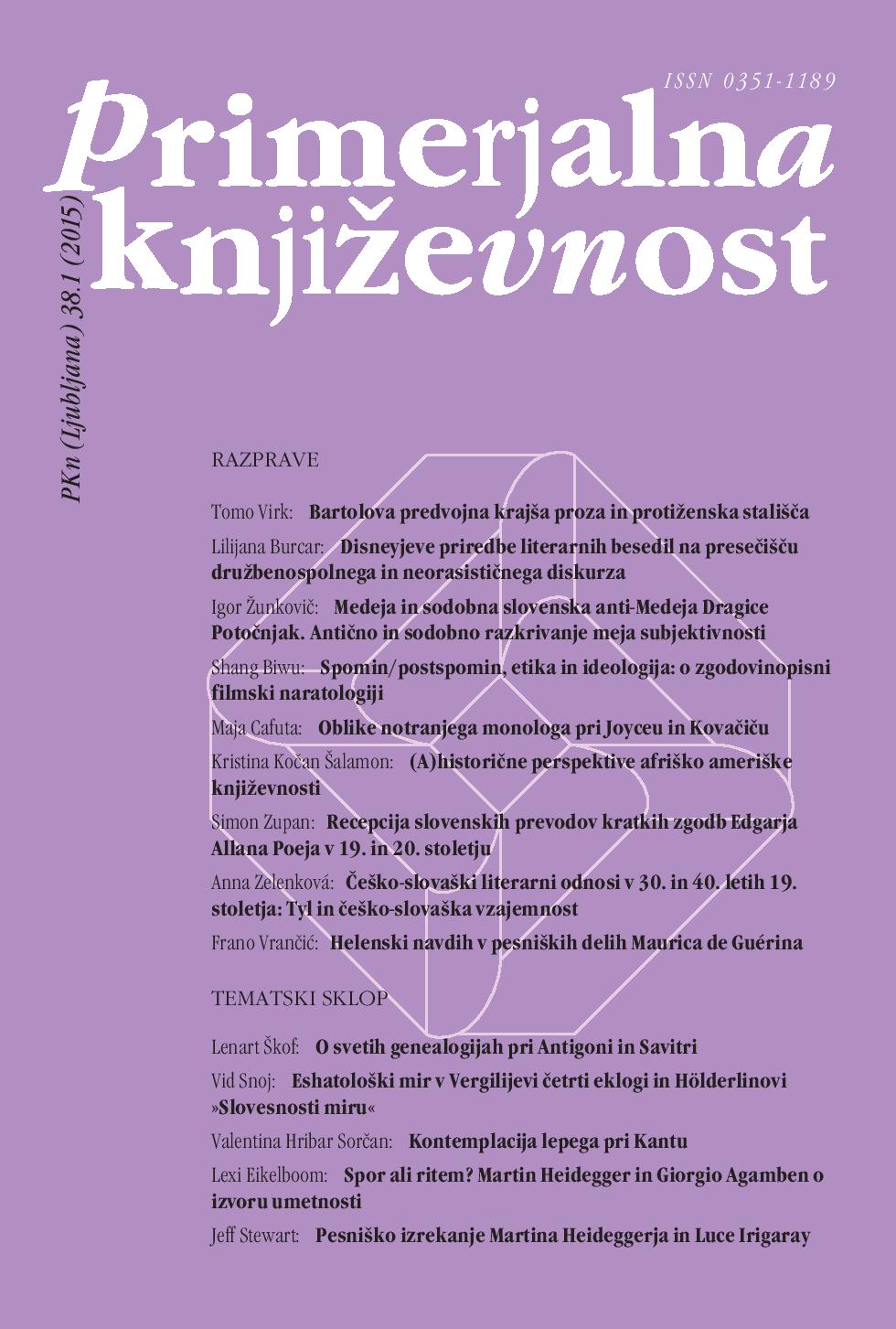Medea and Dragica Potočnjak’s Contemporary Slovenian Anti-Medea: Ancient and Modern Revelation of Subjectivity Borders
Keywords:
Slovenian drama, Potočnjak, Draga, Greek tragedy, Euripides, literary characters, women, strangenessAbstract
This articles discusses Dragica Potočnjak’s play Za naše mlade dame (For Our Young Ladies) and Euripides’ Medea, with special emphasis on the analysis of Medea’s and Katarina’s characters and a comparison between them. The two plays are primarily compared in terms of motif and theme. – The most important similarity between Medea and Katarina lies in the fact that as women and wives they find themselves in extremely hostile and unpleasant situations. They are both betrayed and disappointed wives and lovers that were used and abused by their husbands; they are lonely and in a way they are both strangers in the society they live in. Jason used Medea to facilitate his social ascent, or as a means for claiming the throne that was rightfully his. On the other hand, Boris physically and psychologically abuses, suppresses, and marginalizes Katarina. It is noteworthy that Potočnjak adds the motif of child sexual abuse here, which is so strong that it becomes the play’s main focal point. – The power of Potočnjak’s depiction of sexual abuse originates from her play with the unity of time, which she dissolves and mixes in order to suitably illustrate the dissolved and injured psychological structure of the abused child Brina. – Medea and Katarina are placed in similar situations, but their reactions are significantly different. Based on the differences in their reactions, one can also decipher (and compare) their characters. Medea takes her revenge in what is perhaps the most atrocious way: by killing her sons and Jason’s new wife (and inadvertently also Creon). She is active and takes her destiny in her own hands. In contrast, Katarina is passive and reacts with escapism. She is beaten up and left unheard whenever she wants to speak up or tell that Boris is abusing their daughter. – However, both Medea’s action and Katarina’s inactivity lead to the death of their children. It thus turns out that in a system in which social relations are broken down, unfair, and oppressive (where ethics have no effect) children are always the only real victims. Nothing can stop Medea’s self-will because she can endure the suffering she has inflicted upon herself, whereas Katarina is not even a subject in the constellation of the play For Our Young Ladies. Here the place of an agent is taken by institutions personified by Boris (politics and family), the police officer (repression), and the priest (the Church). The comparison of Medea and her contemporary Slovenian antipode ultimately calls for an ethical reflection on their balance between the solipsistic self-will of an individual and the subjective self-will of a system. As the comparison of two plays created two thousand years apart shows, one needs to constantly recreate this balance oneself because it can never be permanently fixed.References
Boedeker, Deborah. »Becoming Medea.« Medea: Essays on Medea in Myth, Literature, Phylosophy, and Art. Ur. James J. Clauss in Sarah Iles Johnston. Princeton: Princeton University Press, 1997. 127–148.
Evripid. Medeja. Ifigenija pri Tavrijcih. Ljubljana: Založba mladinska knjiga, 2000.
Marinčič, Marko. »Tradicija in modernost v dveh Evripidovih dramah.« Medeja. Ifigenija pri Tavrijcih. Ljubljana: Založba mladinska knjiga, 2000. 149–201.
Marinčič, Marko. »Medea.« Tematologija: izbrana poglavja. Ur. Tone Smolej. Ljubljana: Študentska založba, 2007. 101–115.
Potočnjak, Dragica. Za naše mlade dame. Kranj: Javni zavod Prešernovo gledališče, 2008.
Jelinek, Elfride. Naslada. Radovljica: Didakta, 2005.
Poniž, Denis. Tragedija. Ljubljana: DZS, 1994.


